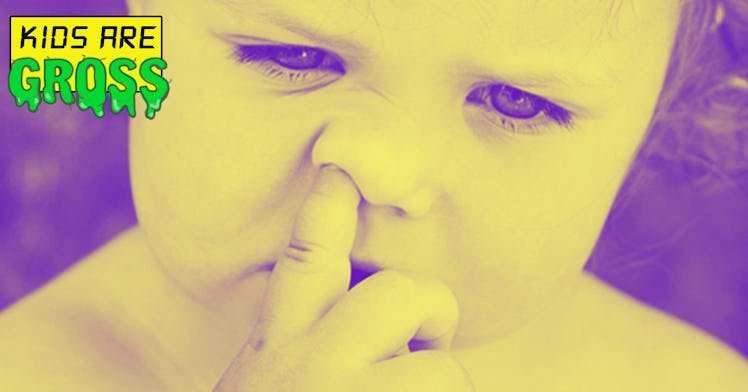Parenting Is Gross, Which Is Why Fathers Stop Feeling Disgust
The ideal is a healthy fear of contaminants, sans psychological breakdown. But who’s to say how much disgust is just right? We are. Take the definitive disgust sensitivity test, designed by the experts.

The first time my two-year-old handed me a log of solid feces—and I absently wrapped the artifact in a tissue and tossed it in the toilet—it hit me. Nothing disgusts me anymore. It used to, but over time fatherhood has eroded any sense of decorum or propriety or cleanliness that I ever had. My childless friends don’t appreciate how easily I can now talk about (let alone mop up) vomit, urine, and poop. It’s nothing to me. It’s part of my life. It’s part of my lifestyle. It’s just something I handle.
My immunity, I should say, is a blessing. Some people are easily disgusted and these people would not enjoy spending time with my children. But many of these people are not parents and most of them are not fathers. How do I know this, because I’ve seen the data and I’m not alone. Fathers are simply hard to disgust (even harder than mothers as it turns out).
Disgustability is, like many weird traits, measured using a very specific scoring system. This one is called the Disgust Propensity and Sensitivity Scale. The scale consists of 16 questions that can measure one’s disgust propensity (frequency of disgust experiences) and sensitivity (the emotional impact of those experiences). Here’s how it works and how to test yourself when you start to suspect that you just don’t care anymore.
Meet The Disgust Propensity And Sensitivity Scale
Answer the following questions (or administer this test to a loved one). Subjects should rate their agreement with each item as 1 (never), 2 (rarely), 3 (sometimes), 4 (very often), or 5 (always). At the end of the evaluation, tally up your total score (scores range from 16 to 80).
Disgust Propensity (Frequency of Disgust Experiences):
- I experience disgust
- I find something disgusting
- I feel repulsed.
- Disgusting things make my stomach turn.
- I screw up my face in disgust.
- I avoid disgusting things.
- I think disgusting items could cause me illness/infection
- I worry that I might swallow a disgusting thing
Disgust Sensitivity (Emotional Impact of Disgust Experiences):
- I think feeling disgust is bad for me.
- It embarrasses me when I feel disgusted.
- I become disgusted more easily than other people
- It scares me when I feel nauseous.
- It scares me when I feel faint.
- When I feel disgusted, I worry that I might pass out.
- When I experience disgust, it is an intense feeling.
- When I notice that I feel nauseous, I worry about vomiting
That’s Just A Number (And It’s Gross). What Does It Mean?
The average score is 35, so anything higher than that indicates at least mildly above-average disgust sensitivity and propensity. As a rule of thumb, studies have shown that most people do not assign any of the 16 questions a score higher than 3 (“sometimes”). So if you’re seeing a lot of 4’s and 5’s, or have a score higher than 40, there may be some cause for concern. People suffering from obsessive compulsive disorder, for instance, tend to score high on these tests.
At the same time, it’s important to note that these tests are intended to be administered in a clinical setting, under strict conditions. It’s possible that taking the test at home, or administering it to a loved one, can skew the results. Talk to your doctor if you’re concerned about the results.
I Think I Might Have OCD. Is There Any Hope?
Absolutely. If you or a loved one is diagnosed with obsessive compulsive contamination fears—a condition partly diagnosed by use of the disgust scale—several treatments are available. Among the most effective is a type of cognitive behavioral therapy known as Exposure and Response Prevention, which usually involves slowly exposing a patient to the feared substance in a safe environment, over time, without allowing them to wash it off. There are also medications available that can help patients cope with compulsive feelings of disgust.
I Got a 16. Is That a Problem?
Not really. The most likely diagnosis is fatherhood, which drives down scores courtesy of exposure to bodily fluids of all consistencies and smells. It’s likely that your score will go back up after that exposure becomes less frequent. In the mean time, it’s simply important to remind yourself that being sanitary is important even when you don’t feel compelled to keep things tidy or clean.
This article was originally published on